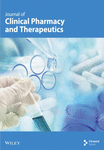Antidepressants versus psychotherapy for bulimia nervosa: a systematic review
Summary
Objective: To assess the efficacy and acceptability of antidepressants compared to psychotherapy as single approaches for the treatment of bulimia nervosa.
Method: Dichotomous outcomes were analysed by calculating relative risks and continuous outcomes by calculating effect sizes. The number needed to treat (or harm) was calculated. Methodological quality of trials and heterogeneity in the results were evaluated.
Results:A meta-analysis including five randomized controlled trials showed a non-significant difference in short-term remission of bulimic symptoms favouring psychotherapy. Remission rates were 20% for antidepressants and 39% for psychotherapy (P=0·07). Dropout rates were higher(P=0·027) for antidepressants (40%) than for psychotherapy (18%). The number needed to harm (NNH) was 4.
Discussion: Psychotherapy was superior to antidepressants, but using a more conservative statistical approach this difference, although clinically relevant, was not significant. The number of trials might be insufficient to show the significance of a 20% absolute risk reduction in efficacy. Psychotherapy was a better accepted treatment.




